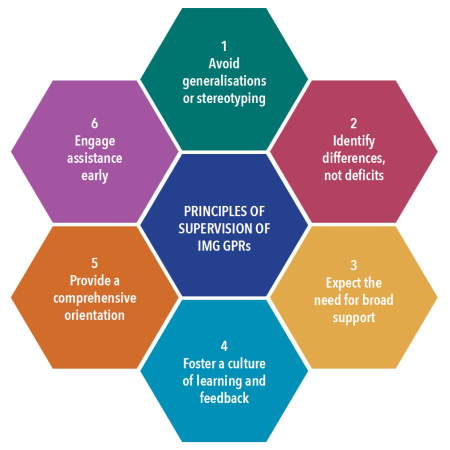
A broader world view
Experience of alternative health systems (often in disadvantaged communities)
Specific clinical skills
Second (or third) languages
Resilience to setbacks

Date reviewed: 01 February 2024

GPTA Ltd t/as GP Supervision Australia
PO Box 787 Gisborne Vic 3437
Level 40/140 William Street Melbourne Vic 3000